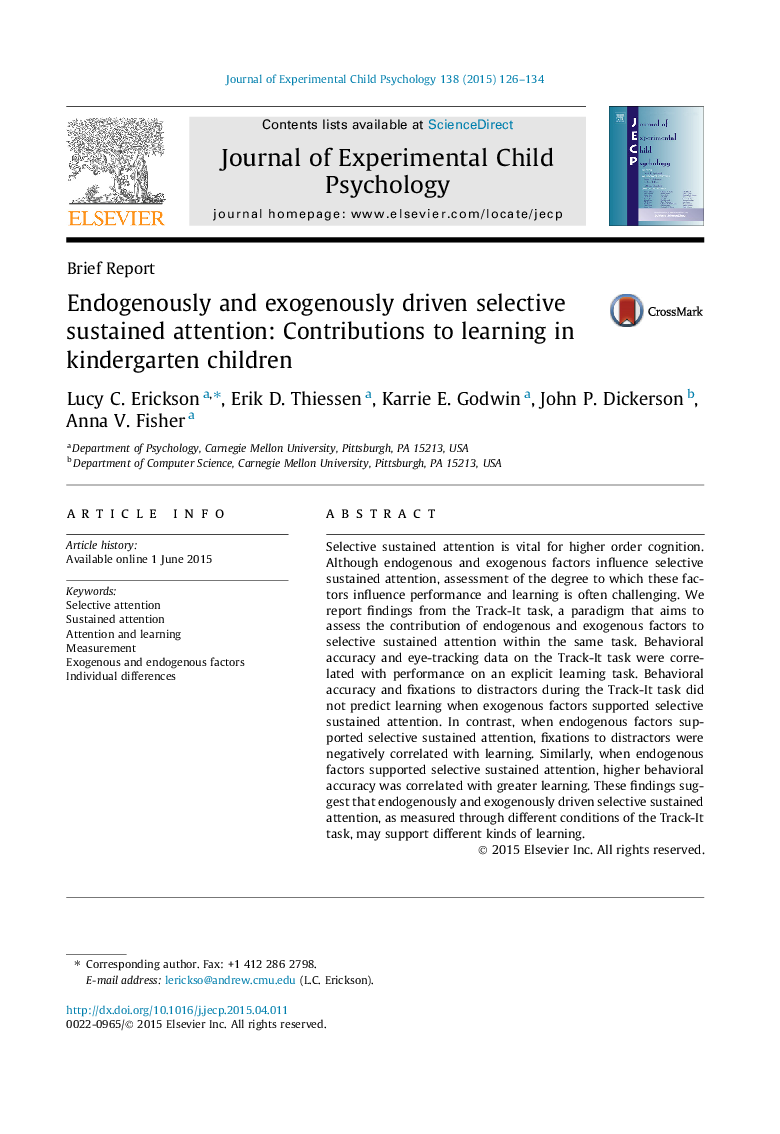| کد مقاله | کد نشریه | سال انتشار | مقاله انگلیسی | نسخه تمام متن |
|---|---|---|---|---|
| 917942 | 1473474 | 2015 | 9 صفحه PDF | دانلود رایگان |
• We report findings from a task measuring selective sustained attention in children.
• Endogenously-driven attention predicts explicit learning.
• Exogenously-driven attention is unrelated to explicit learning.
• Distinct attention control systems may support different kinds of learning.
Selective sustained attention is vital for higher order cognition. Although endogenous and exogenous factors influence selective sustained attention, assessment of the degree to which these factors influence performance and learning is often challenging. We report findings from the Track-It task, a paradigm that aims to assess the contribution of endogenous and exogenous factors to selective sustained attention within the same task. Behavioral accuracy and eye-tracking data on the Track-It task were correlated with performance on an explicit learning task. Behavioral accuracy and fixations to distractors during the Track-It task did not predict learning when exogenous factors supported selective sustained attention. In contrast, when endogenous factors supported selective sustained attention, fixations to distractors were negatively correlated with learning. Similarly, when endogenous factors supported selective sustained attention, higher behavioral accuracy was correlated with greater learning. These findings suggest that endogenously and exogenously driven selective sustained attention, as measured through different conditions of the Track-It task, may support different kinds of learning.
Journal: Journal of Experimental Child Psychology - Volume 138, October 2015, Pages 126–134
